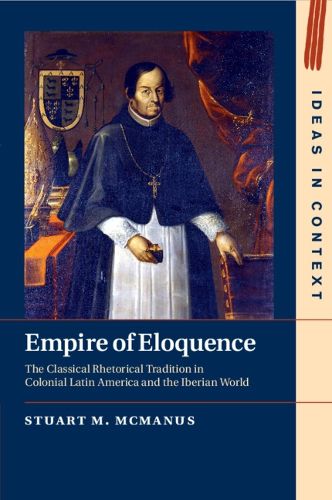Readings Newsletter
Become a Readings Member to make your shopping experience even easier.
Sign in or sign up for free!
You’re not far away from qualifying for FREE standard shipping within Australia
You’ve qualified for FREE standard shipping within Australia
The cart is loading…






The global reach of the Spanish and Portuguese empires prompted a remarkable flourishing of the classical rhetorical tradition in various parts of the early modern world. Empire of Eloquence is the first study to examine this tradition as part of a wider global renaissance in Europe, the Americas, Asia and Africa, with a particular focus on the Iberian world. Spanning the sixteenth to the early nineteenth centuries, the book argues that the classical rhetorical tradition contributed to the ideological coherence and equilibrium of this early modern Iberian world, providing important occasions for persuasion, legitimation and eventual (and perhaps inevitable) confrontation. Drawing on archival collections in thirteen countries, Stuart M. McManus places these developments in the context of civic, religious and institutional rituals attended by the multi-ethnic population of the Iberian world and beyond, and shows how they influenced public speaking in non-European languages, such as Konkani and Chinese.
$9.00 standard shipping within Australia
FREE standard shipping within Australia for orders over $100.00
Express & International shipping calculated at checkout
The global reach of the Spanish and Portuguese empires prompted a remarkable flourishing of the classical rhetorical tradition in various parts of the early modern world. Empire of Eloquence is the first study to examine this tradition as part of a wider global renaissance in Europe, the Americas, Asia and Africa, with a particular focus on the Iberian world. Spanning the sixteenth to the early nineteenth centuries, the book argues that the classical rhetorical tradition contributed to the ideological coherence and equilibrium of this early modern Iberian world, providing important occasions for persuasion, legitimation and eventual (and perhaps inevitable) confrontation. Drawing on archival collections in thirteen countries, Stuart M. McManus places these developments in the context of civic, religious and institutional rituals attended by the multi-ethnic population of the Iberian world and beyond, and shows how they influenced public speaking in non-European languages, such as Konkani and Chinese.